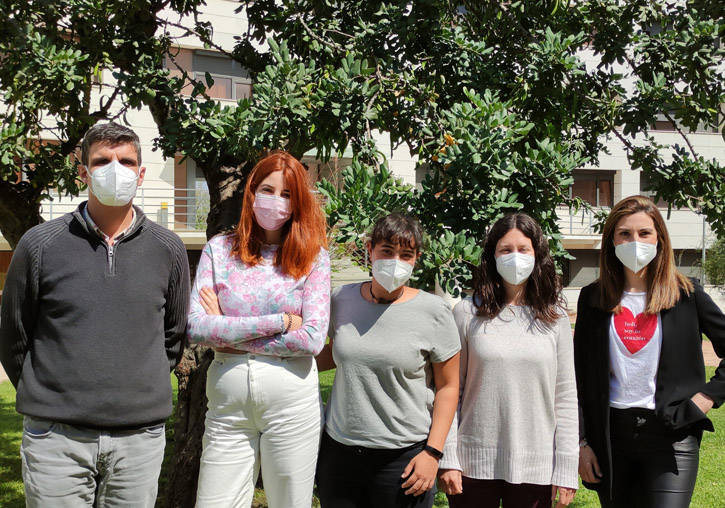A study of the University of Valencia and the INCLIVA shows that stress in childhood and adolescence can modify the brain
- Scientific Culture and Innovation Unit
- April 20th, 2021

A study by the University of Valencia (UV) and the INCLIVA Health Research Institute, of the Clinical Hospital of Valencia, shows that stress during the early stages of life can modify the brain, particularly in women. The work, led by Juan Nácher, Professor of Cell Biology and a member of the INCLIVA Psychiatry and Neurodegenerative Diseases Research Group, suggests that the impact of adverse and stressful experiences is especially important in the early years of life, as certain regions of the brain, especially the prefrontal cortex, are still developing.
Consequently, aversive experiences that occur during childhood or adolescence can cause long-term alterations in neural connections and their functioning and associated behaviours, highlights the research published in the journal Neurobiology of Stress.
Although sex influences the stress response and women are more likely to develop related psychiatric disorders, knowledge about the effects of stress on women is still limited, according to work led by Nácher, also a researcher of the Networked Biomedical Research Centre on Mental Health (CIBERSAM).
To analyse the long-term effects of stress in early life on the neural circuits of the prefrontal cortex and to find out whether sex has an influence on them, we made male and female mice undergo stressful experiences during the later stages of childhood and adolescence. The results showed that stress in early life has a very important effect on the neural circuits of the prefrontal cortex, especially in females.
The alterations were detected particularly in inhibitory neurons, a type of neurons specialised in the control and synchronisation of the neural networks of the brain. In addition, changes in the expression of some molecules that regulate the plasticity of these inhibitory neurons were observed.
The first author of the article is Clara Bueno Fernández, a predoctoral researcher at the University of Valencia, and the research has been carried out in collaboration with Carmen Sandi, from the Brake & Mind Institute of the École Politechnique Federal de Laussanne. The research has been funded by the Ministry of Science and Innovation and the Valencian Government (Prometheus Program).
Article:
Clara Bueno-Fernandez et al. «Long term effects of peripubertal stress on excitatory and inhibitory circuits in the prefrontal cortex of male and female mice». Neurobiology of Stress. Volume 14, May 2021, 100322. DOI https://doi.org/10.1016/j.ynstr.2021.100322. Link: https://ir.uv.es/jtJVD3G
















